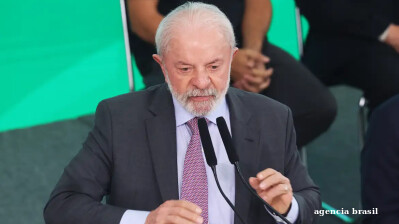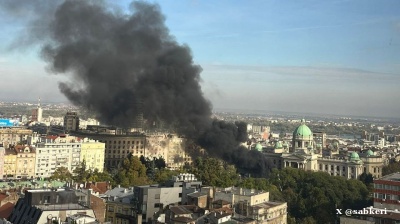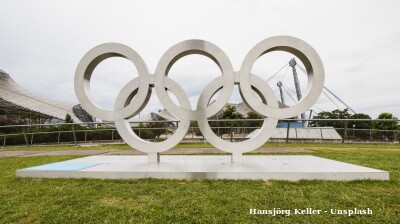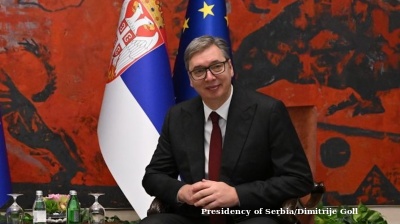Russia has partially unlocked Ukrainian ports on the Azov Sea, Ukraine’s Infrastructure Minister Volodymyr Omelyan said on December 3, reports Reuters.
“Yes, Berdyansk and Mariupol ports are partially unblocked. Vessels make their way to the entrance and exit through the Kerch strait toward Ukrainian ports ... the movement is partially restored,” the ministry quoted Omelyan as saying.
Previous reports said that shipping in the two main Ukrainian ports – Berdyansk and Mariupol — in the Sea of Azov had come to a halt and that no ships had arrived or departed for almost a week.
International action
Ukrainian President Petro Poroshenko kept up his drive to rally the international community to condemn Russia’s aggression in the Sea of Azov. The Ukrainian president said he would file a claim against Russia in the UN International Court over the incident.
“I gave instructions to the minister of foreign affairs to ensure appropriate consular assistance, there were appeals to the European Court of Human Rights (ECHR) and a claim is being developed to the United Nations International Court of Justice regarding the responsibility of the Russian Federation for aggression against our state,” Poroshenko said during the talk show Svoboda Slova on ICTV Channel.
The move provoked a sharp response from Russia, which condemned the ECHR for accepting the case without any supporting documentation or evidence.
"The Russian Ministry of Justice expressed its concern to the ECHR over the fact that the European court had initiated proceedings in response to the motion substantiated mostly by reference to media reports and containing no official documents, which could be received by Ukraine from Russia through diplomatic channels and during intergovernmental cooperation, which is standard procedure in such cases," the ministry said, as cited by Tass.
Ukraine has also protested to the Maritime Safety Committee of the International Maritime Organisation (IMO) over the Azov incident. Thirty-four IMO countries supported Ukraine's position, according to the embassy of Ukraine in the UK.
"On December 3 this year, the Ukrainian delegation to the Maritime Safety Committee of the International Maritime Organisation (IMO) expressed a categorical protest against the Russian Federation in connection with its armed attack and capture of three Ukrainian military boats and their crew members," reads the report as cited by Ukrinform.com.
And finally, and most seriously, Poroshenko proposed withdrawing from the Treaty on Friendship, Cooperation and Partnership between Ukraine and the Russian Federation that was signed shortly after the fall of the Soviet Union.
The treaty renews automatically every ten years, unless one side expresses an objection, and just renewed in October this year. Poroshenko is proposing to break the treaty and withdraw from April 1, 2019 – immediately after the first round of the Ukrainian presidential elections ends. As none of the candidates have a clear lead, it is almost certain there will be two rounds to the election.
"The purpose [of the bill] is to terminate the Treaty on Friendship, Cooperation and Partnership between Ukraine and the Russian Federation in view of its continued substantial violation by the Russian Federation and in accordance with Article 40 of this Treaty," the draft bill submitted by Poroshenko says.
Military buildup
Kyiv has also justified its imposition of martial law by claiming the Russians are massing troops on the Ukrainian border and preparing an assault.
On November 26, Ukraine’s Verkhovna Rada (parliament) approved Poroshenko’s decree declaring a 30-day martial law in the Vinnitsa, Lugansk, Nikolayevsk, Odessa, Sumy, Kharkov, Chernigov, Donetsk, Zaporozhye and Kherson regions, as well as in Ukraine’s territorial waters in the Sea of Azov.
However, Kyiv has failed to provide any evidence of Russian troop movements. During the high tensions following the 2014 annexation of Crimea by Russia, there were also multiple reports of an imminent invasion that came to nothing. Poroshenko’s warnings have generally been met with scepticism.
“President Poroshenko claims there are 80K Russian servicemen in Donbas and Crimea. That’s almost a third of all Russian ground forces for a speck of territory compared to Russia’s size. I’d propose a recount,” journalist Leonid Ragozin tweeted.
Nevertheless, Nato is carefully monitoring the situation in the Black Sea and has been enhancing its presence in the region, secretary general Jens Stoltenberg told a press conference in Brussels, as reported by the eurointegration.com.ua news site. “Last year, we enhanced the presence of Nato ships in the Black Sea from 80 to 120 days,” he said. “We have an air police mission in the region, and we have a multinational brigade in Romania.”
Kerch
The Kremlin released the transcript of Russian President Vladimir Putin’s press conference where he again laid out Russia’s position that the naval clash at the mouth to the Kerch straits in the Black Sea on November 25 was a provocation by Ukraine. Putin said he repeated this position in a meeting with French President Emmanuel Macron and German Chancellor Angela Merkel.
“The reaction was calm. I don’t know if they were convinced or not; you will have to ask them, but we have laid out our position, and not only our position, but also the chronology of the situation. It is difficult to argue with this. How can one deny it when the ship’s log journal says these ships had the explicit task of secretly penetrating our territorial waters and secretly passing the Kerch strait? What was it? It was a planned provocation, that’s what it was. This is evidenced by the documents found and the testimony of the sailors themselves. That's all. Well what can you say? There is nothing to argue about,” Putin said at the press conference.
Putin went on to say that the ten regions where martial law has been imposed are the same as where Poroshenko does not enjoy strong support. These comments were probably intended as much for Russian speakers in Ukraine as the international press corps.
“But, what’s even worse, they introduced martial law in ten areas, precisely those where the incumbent president does not enjoy special support and his policy does not find unanimous approval. What does this mean? Just think: this means that the current leadership of Ukraine has with its own hands divided the country in two parts – one trustworthy and the other not so much. I can’t even imagine a worse mistake,” Putin said.
The official Kremlin translation of the comments also cleared up a comment Putin made that appears to have been a mistranslation. Social media was in uproar after AFP published a report claiming Putin said that “The war would continue as long as the government in Ukraine says in power.”
The full quote, as translated by the Kremlin, says: [The Kyiv authorities] are a party of war, and while they remain in power, all these tragedies and the war will continue. Why? Because during any kind of hostilities, with provocations similar to the one in the Black Sea, it is always easier for oligarchic authorities to pursue a policy aimed at plundering their own people and their state. This is the case when the situation both in our country and in Ukraine can be described by this proverb: “War makes some people rich”. This is the first reason why the current government is not interested in a peaceful settlement… And here is the second. War helps cover up their failures in economic and social policy. They are not the ones to blame — it is the external aggressor who is…”
Passports and sailors
The 24 Ukrainian sailors involved in the incident have now been formally charged with illegally crossing the Russian border and will be put on trial in Russia. They have already been moved from Simferopol to a detention centre in Moscow.
“They were charged immediately after their arrest. All of them are charged under part 3 of article 322 of the Criminal Code of the Russian Federation (Illegal crossing the border of the Russian Federation),” said the lawyer of one of the arrested sailors, Denis Gritsenko.
Putin said during his press conference that there are no plans to send the 24 sailors captured in the Sea of Azov back to Ukraine and said they will be put on trial as a way of “proving” the whole incident was a provocation.
“About the sailors. The exchange issues have not been raised as yet and the Ukrainian side has not come up with such issues. It is too early to even speak about it as the investigation is still on. We need to prove the provocative nature of the Ukrainian authorities’ actions and formalise that in legal documents. I have already spoken about a document that looks like a sort of log journal, they call it something different, which has records – I think they have even been published. We need to get a full account from the sailors, then fill in the proper documents, and then we will see,” Putin said.
Asked if Russia would respond in kind after Ukraine banned all Russians between the ages of 16 and 60 from entering the country, Putin said Russia would not.
“No. We are not going to introduce any restrictions against Ukrainian nationals. Moreover, we will liberalise their stay on our territory and liberalise acquiring Russian citizenship for those of them who want it,” Putin said.
News

Brazil's Lula announces fourth presidential run at 80
Brazilian President Luiz Inácio Lula da Silva has announced he will seek re-election in October 2026, confirming his candidacy during a state visit to Indonesia on October 23.

Serbian president blames opposition for “terrorist attack” outside parliament
President Vucic blamed opposition groups for what he described as a “terrorist act” outside the National Assembly in Belgrade, after a 70-year-old man opened fire on a camp of government supporters and set fire to one of their tents.

IOC sanctions Indonesia over Israel visa ban
The International Olympic Committee has announced that international sports federations will be advised not to hold competitions or meetings in Indonesia after the country barred Israeli athletes from entering.

Serbian president accuses EU of backing “colour revolution” after European Parliament adopts harsh new resolution
MEPs back the toughest rebuke yet from Brussels towards Serbia in over a decade of EU candidacy.




